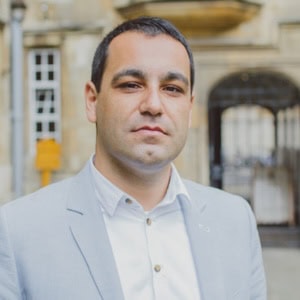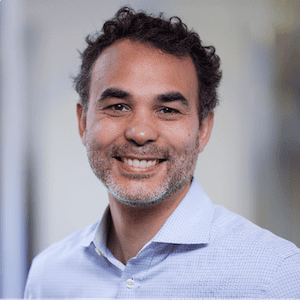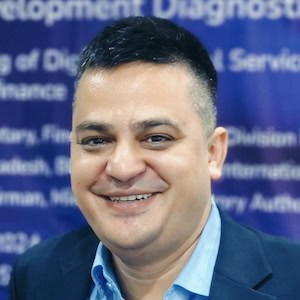-
Australia’s DFAT and XPRIZE Team Up to Tackle Water Scarcity
XPRIZE, Tata Group and innovationXchange are together funding a prize for an affordable solution to water scarcity. The idea is to generate clean water from the air, in situations where water is currently unavailable or inaccessible. XPRIZE will help the top five finalists access advance market commitments, allowing them to test their technology in the field, at scale. Teams have until April 28 to register.
- Categories
- Environment, Technology
-
The Regenerative Economy: A New Approach to Capitalism
Bill Kramer doesn't subscribe to a basic tenet of neoliberalism – that man is selfish and markets are an efficient way to channel that basic human trait. He and other entrepreneurs and academics working under the general umbrella of “regenerative future” studies believe optimal productivity can be restored only when natural systems are fully understood. The topic will be further explored at the upcoming Regenerative Future Summit.
- Categories
- Uncategorized
-
Embrace Your Liberalism, Impact Investing: A Q&A with a ‘Biblically Responsible Investor’
Inspire Investing, a leader in the “Biblically Responsible Investing” movement, recently launched two funds targeted at conservative Christians. The funds, which screen out companies that participate in abortion, gambling, alcohol, pornography or “the LGBT lifestyle,” attracted $42 million in assets in just the first two weeks, demonstrating a clear appetite for alternatives to the “politically liberal agenda" of most SRI funds, Inspire founder Robert Netzly says in this podcast. Should traditional SRI just accept this growing politicization and embrace its liberal roots?
- Categories
- Investing
- Tags
- ESG, impact investing
-
Ford Foundation Sends Message to Those Still on Impact Investing Fence: A Q&A with Darren Walker
Earlier this month, Ford Foundation President Darren Walker announced the 81-year-old organization is putting "our money where our mouth is" and investing $1 billion over the next 10 years in affordable housing and financial services for people in developing countries. In this email Q&A, Walker talks about why the foundation made the shift and the signals he hopes it sends.
- Categories
- Investing
-
Redefining Global Health: Nations Ascending vs. People Cured
Dr. Vanessa Kerry is the co-founder and CEO of Seed Global Health, which helped establish a novel public-private partnership designed to address the shortage of health professionals in emerging economies. Kerry, who will deliver a keynote address at the upcoming Global Health & Innovation Conference at Yale University, talks about sustainability in global health, overcoming current political challenges and true corporate citizenship.
- Categories
- Health Care
-
Four Ways to Bring Evidence into Education Policy: Lessons from IPA’s Work in Emerging Markets
Evidence-based policymaking makes sense, but can be hard to achieve. To help better understand the issues involved, IPA has compiled summaries of evidence highlighting education policy lessons. Here, Heidi McAnnally-Linz and Bridget Konadu Gyamfi detail four strategies the organization is pursuing in different contexts, all of which are leading to a greater understanding of evidence – to varying degrees of impact so far.
- Categories
- Education, Impact Assessment
-
Home Sweet Home: Mobilizing Microfinance for Housing
Only 2 percent of microfinance portfolios consist of housing loans. Why? The authors say it's because housing languishes in the “household spending” category; it's not income generating, so it's somehow less deserving. It will soon be in the spotlight, however, as the eighth European Microfinance Award focuses on what financial institutions serving the world’s poor can do to address their housing needs.
- Categories
- Investing
-
From Luxury to Economy: Segmenting Health Care to Reach the Poor
Should health care be segmented in much the same way as cars and other products? Our gut reaction is likely to be, “No!” After all, it seems unfair that those with money have access to care while the poor don’t. But health care already is segmented across a variety of social determinants, including wealth. What if health care was not segmented based on the quality of care provided? Instead, what if health care were segmented based on how the care was delivered?
- Categories
- Health Care
- Tags
- public health










